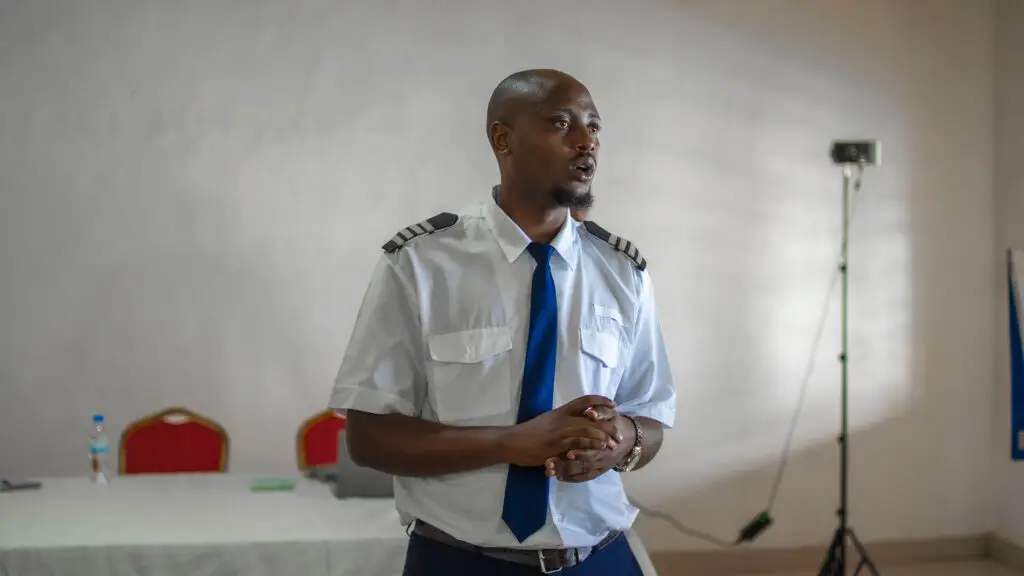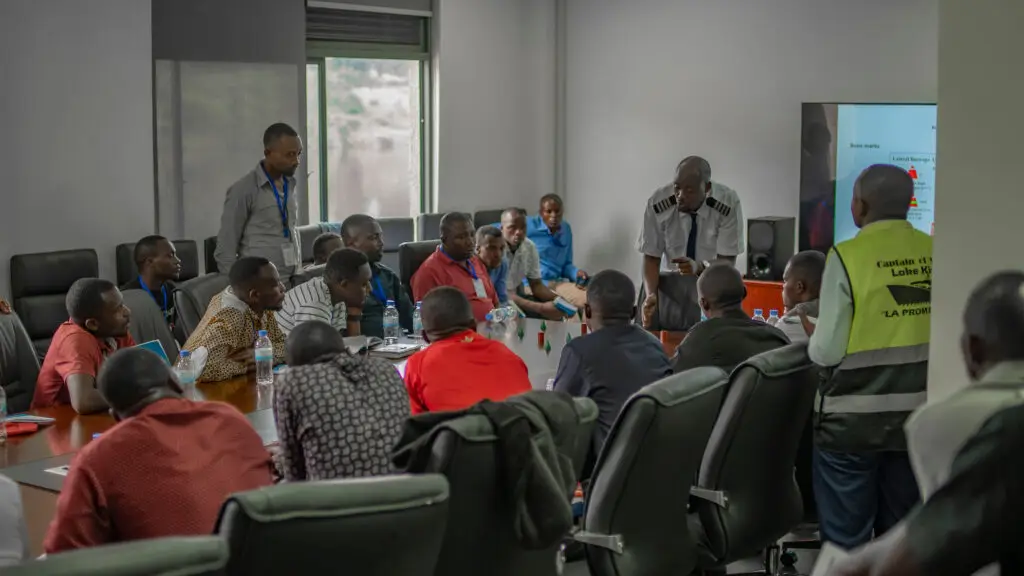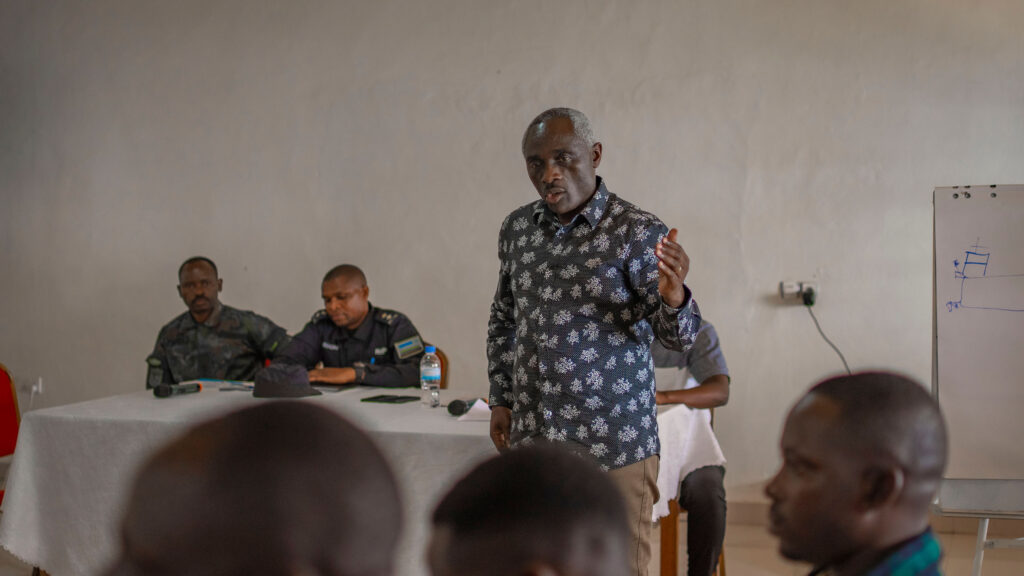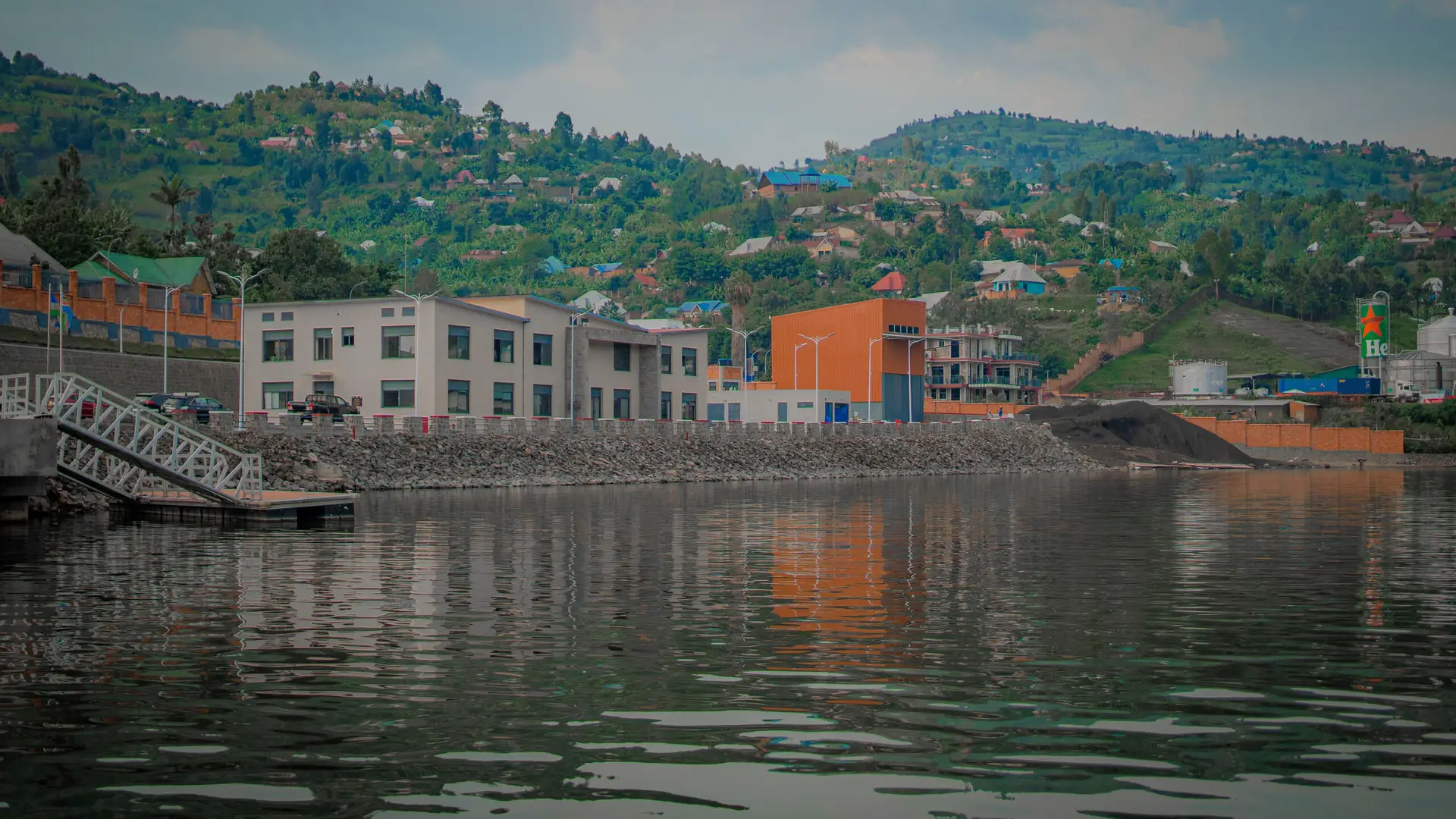The waters of Lake Kivu have long been crucial for trade between Rwanda and the Democratic Republic of Congo (DRC), but for many boat operators and traders, navigating the lake was as much about managing risk as it was about reaping opportunities. Vincent Twizeyimana, a boat operator at Rusizi Port, remembers a time when outdated facilities and slow manual offloading made daily operations an uphill battle.
“We were constantly struggling. The docks were falling apart, and the lack of proper equipment meant that our goods were exposed to the elements,” he reflects.
It was such frustrations that led to an important moment in the region’s maritime safety awareness training recently organised by the Rwanda Transport Development Agency (RTDA) at both Rusizi and Rubavu ports. The sessions sought to address the challenges of safety and operational inefficiency that have long plagued the ports. More than 60 participants boat operators, port workers, and local authorities gathered to learn how to improve safety protocols, emergency responses, and operational practices to ensure the sustainability of the region’s critical trade routes.
These two ports are vital arteries for commerce in the Great Lakes region. The Rubavu-Gisenyi and Rusizi-Bukavu corridors are among the most significant border crossings between Rwanda and the DRC. The economic activity they facilitate is substantial. For Rubavu Port, the scale of its operations is significant, it handles an estimated 40 trucks daily, moving over 500,000 tonnes of cargo annually, and provides permanent employment for over 200 workers. Additionally, it is designed to handle up to 700,000 tons of goods and 2.7 million passengers each year.
Many boat operators and traders often operated with limited knowledge on safety regulations or the best practices for managing emergencies. The situation was particularly dire at Rusizi Port, which despite recent upgrades to its port’s infrastructure, the absence of clear safety procedures left many workers exposed to preventable risks.
Situated on the shores of Lake Kivu, Rusizi Port is an important transport gateway as well as an economic lifeline for the region. The port facilitates the movement of critical goods like cement, construction materials, and fuel between Rwanda and the DRC, which are central to the economies of the Great Lakes region. The DRC is one of Rwanda’s top export destinations, with formal exports valued at over $200 million annually, a significant portion of which flows through these western corridors.

While the port’s infrastructure improvements have enhanced operational efficiency, safety remains a top priority as trade volume continues to rise. According to Jean Marie Ndizeye, Senior Engineer at RTDA, the training provided participants with the necessary tools to ensure safety while keeping the port running smoothly. “Safety is crucial, not only for protecting lives but also for protecting the future of the port itself,” he emphasizes.
Melanie Mukandayisenga, who transports cement and sand between Rusizi and Bukavu, recalls the anxiety of working without proper safety equipment. “Operating on the lake was always stressful,” she says. “We didn’t know what to do in case of an emergency. We had no way to deal with oil spills or medical crises, and sometimes the communication with our staff wasn’t clear, which made everything feel more dangerous.”
During the training, boat operators and port workers were introduced to essential skills, such as the correct use of life jackets, fire extinguishers, and navigation charts. They also learned emergency response protocols for crises such as oil spills and medical emergencies. For some, the training came as a timely reminder of the real risks they face daily.
Espoire Nyamurinda, a trader from Idjwi Island, the training happened just a week after a tragic loss. A week earlier, his boat, carrying cement, sank on the lake. “We don’t have insurance for our boats, so when something like that happens, we lose everything,” he explained. “The training showed me how important it is to be prepared. I now understand why safety measures such as life jackets and insurance are crucial.”

Melanie, too, recognised the value of the training. “In the past, we didn’t have sufficient knowledge of international maritime laws or how to handle certain emergencies. But now, I feel more equipped to handle whatever comes our way,” she said.
The workshop also focused on operational efficiency, something that had long been a challenge at Rusizi Port. Slow offloading procedures, lack of proper equipment, and poor planning had created bottlenecks that impacted trade flow. Local authorities, along with RTDA, addressed these issues, ensuring that boat operators could improve their loading and unloading procedures, which could ultimately lead to faster turnaround times and more reliable service.
“While this is a good start, we need refresher courses, better communication between management and staff, and more resources to make sure everyone remains informed and prepared,” noted Pascal Nzamwita, a trader.

“A safer port means better trade,” he says. “When our boat operators are well-trained and our port complies with international standards, we can attract more investment and grow our economy. Safety and economic development go hand in hand,” Phanuel Sindayiheba, Mayor of Rusizi District, concluded. “The strategic investment in both the infrastructure and the people at Rusizi and Rubavu ports is not just about logistics; it is about securing a prosperous and integrated economic future for our entire region.”


